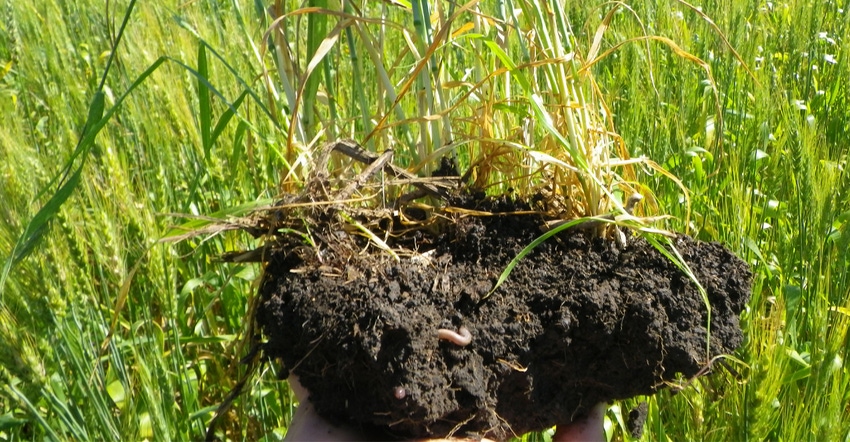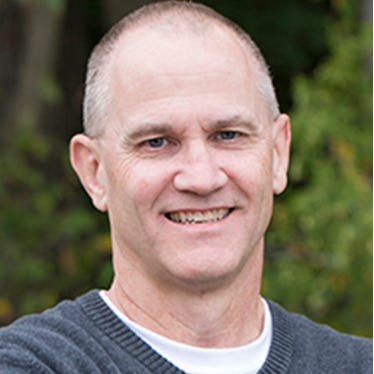
Managing soil health is at the top of mind for Midwestern producers, and starting this fall, South Dakota State University students can start working their way toward a soil health management minor.
To meet the growing need to conserve soil resources, the South Dakota board of regents earlier this summer approved a minor in soil health management, building on course offerings in agronomy, soil science and precision agriculture majors.
“The basics of soil health are covered in many of our courses,” says Brent Turnipseed, assistant department head and professor of agronomy, horticulture and plant science. “The minor enables students to declare to themselves and to potential employers that they have a deep interest in a topic and the depth in coursework focused in this area, adding value to their major by broadening their skills.”
Born from changing needs
David Wright, department head, says the impetus behind the soil health minor was to meet the needs of a changing agricultural ecosystem and to reflect the passion of South Dakota’s farmers who are living the soil health message.
Bryan Jorgensen, a farmer from the Ideal, S.D., and an SDSU graduate from the late1980s, oversees the crop and land management side of Jorgensen Land and Cattle, which involves over 12,000 acres of crop ground that has been 100% no-till since the early 1990s.
Though he was a mechanized agriculture major, he quickly shifted gears to oversee the operation’s cropping systems. Now the chief agronomy operations officer in the family operation, he recalls that soil health terminology common today wasn’t prevalent when JLC started down the soil health road.
“Even the early days of no-till and all the way up until the mid-2000s, we weren’t really talking about soil health,” he says, “although we were realizing how it’s defined today, but we weren’t calling it ‘soil health.’ That terminology just really came down in the last five to six to seven years.”
Practicing techniques leading to better soil health earned JLC the 2015 South Dakota Leopold Conservation Award. That recognition, in turn, spurred Jorgensen and other like-minded South Dakota farmers to start the state’s Soil Health Coalition.
“We place a strong emphasis on soil health and sustainability throughout our entire production system,” he says, as do others involved with the Soil Health Coalition, thus planting the seed in discussions with SDSU administrators to contemplate starting a soil health minor.
Passing on education
Now that SDSU students will have the opportunity to obtain a soil health minor, Jorgensen sees nothing but positives going forward. “They can take those applied sciences and actually bring them back home to help transition their farm into a more soil-health-friendly operation,” he says.
Students might also choose to work as an agronomist a cooperative or another entity, and not just sell products, but also apply soil health principles. “They can take those same sciences and same ideals and apply them there, so that it can be beneficial to the producers that are utilizing their talents,” Jorgensen says.
“It’s a vastly different paradigm than what they’re used to,” he says. “They’re brought up in nitrogen and phosphorus and potassium removal, and they’re really not focused on soil health. Are they focused on soil microbiology or rotations? They’re driven by more of the monetary thing of selling product, and pushing yield, which that’s what’s going on, and that’s fine. The soil health world is not that world; it’s a completely alternative world to that.”
Modern ag
Wright says adding a soil health minor to an SDSU graduate’s toolbox just better prepares them for the future of modern agriculture. “Imagine the marketability of an SDSU graduate with an agronomy major, and precision agriculture and soil health management minors, or a graduate with a precision agriculture major, with agronomy and soil health management minors. I believe graduates with skills in these areas are the workforce of the future.”
On top of the optimism, Jorgensen sees the minor spreading the soil health message. He believes the framework is there for SDSU to offer a soil health major in the near future.
Wright says it typically takes at least three semesters to determine student interest. This fall’s incoming freshman class is the first to have a chance to be a part of something with healthy potential.
More information can be found at South Dakota State University.
About the Author(s)
You May Also Like






